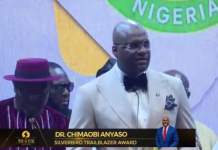The Afrobeats landscape was set ablaze this week after Nigerian rap titan Olamide boldly crowned Wizkid the rightful successor to Afrobeat pioneer Fela Kuti — a proclamation that has since fueled one of the biggest music debates of the year.
Speaking in Toronto during a press engagement at York University, Olamide didn’t mince words as he praised Wizkid’s impact, artistry, and staying power. Reflecting on their long-running creative alliance — responsible for smash hits like “Kana,” “Kai,” and “Omo Toh Shan” — the YBNL boss said their connection goes far beyond industry politics.
“After Fela, Wizkid is the greatest Afrobeats artist ever,” Olamide declared, sending shockwaves through the music scene.
According to him, their collaborations thrive on pure artistic chemistry and genuine respect, not commercial convenience. He pointed to Wizkid’s global reach, the longevity of his sound, and his ability to constantly reinvent Afrobeats on the world stage as proof of his unmatched influence.
But Olamide’s remarks didn’t land quietly.
Within minutes, social media erupted. On X (formerly Twitter), fans launched fiery polls, hot takes, and spirited arguments, weighing Olamide’s claim against the achievements of other dominant voices — from Burna Boy and Davido to rising global stars shaping the genre’s evolution.
Cultural commentators say Olamide’s endorsement goes deeper than stan culture. To them, it reflects the broader journey of Afrobeats: from Fela’s revolutionary Afrobeat movement to the polished, globally resonant sound led by stars like Wizkid.
Whether hailed as truth or dismissed as bias, Olamide’s declaration has thrust a spotlight back on the question of legacy in contemporary Afrobeats — and the conversation shows no signs of slowing.
One thing remains undeniable: in the ever-evolving story of Afrobeats, Wizkid’s name continues to echo loudly, and Olamide’s words have only made that echo stronger.
































